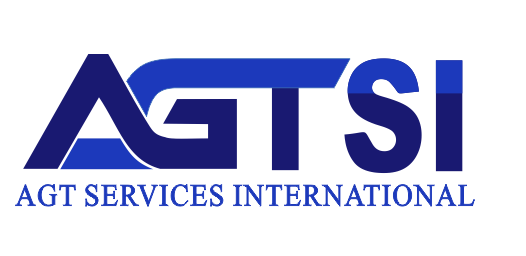Introduction: Recruiter Productivity
Are you a recruiter who feels like there’s too much to do daily? Do you spend much time on boring paperwork instead of finding the best candidates? Well, you’re not the only one feeling this way. Getting more productive in a short time is important in recruiting. So, in this guide, we’ll look at ten steps you can take to increase recruitment productivity and make your recruiting job easier.
1. Use Recruitment Software
Recruitment software, such as Applicant Tracking Systems (ATS), is one of the most effective ways to improve productivity. These tools automate time-consuming tasks like resume parsing, candidate tracking, and collaboration, allowing you to simplify your workflow and focus on high-value activities. With features like resume parsing and candidate profile improvement, recruitment software can transform your work, allowing you to source and manage candidates more efficiently than ever.
Recommended: Top Social Media Recruiting Tools
2. Optimize Your Candidate Data-Based
A well-organized candidate database is a recruiter’s best practice to increase hiring productivity. Maintaining a complete and up-to-date candidate database can reduce the time spent sourcing and screening candidates and increase the chance of finding the perfect employees for your open positions. Use keyword-based searches and advanced filtering options to quickly identify qualified candidates and simplify the recruitment process.
3. Appointed a Productive Recruiting Staff
Boost your hiring productivity starts with a solid plan. Take the time to map out your workflow and identify key tasks and priorities for each team member. Setting clear goals and deadlines allows you to stay focused and ensure your efforts match your objectives. Whether creating a to-do list, prioritizing tasks, or using project management tools, finding a workflow that works for you is important for maximizing productivity.
Recommended: 20 Recruiting Ideas Outside the Box
4. Adopt Task Management Tools
In today’s digital age, there’s no shortage of tools to help you stay organized and on track. Finding the right tool can make a difference in recruitment productivity, from simple to-do lists to worldly task management platforms. Whether you prefer a standalone task manager or an integrated solution like a recruitment CRM, investing in the right tools can simplify your workflow and help you stay on top of your workload.
5. Avoid Multitasking
While it may seem Unexpected, multitasking can slow HR productivity. Instead of juggling multiple tasks at once, focus on one task at a time and give it your full attention. This approach improves the quality of your work and reduces the risk of errors and oversights. Concentrating on one task at a time allows you to work more efficiently and achieve better results in less time.
Recommended: Applicants vs Candidates
6. Simplify Your Recruitment Process
In today’s ambitious job market, time is of the heart. Lengthy and bulky recruitment processes can prevent top talent and result in missed opportunities. To attract and retain top candidates, you must simplify your recruitment process and stop unnecessary steps and stoppages. From simplifying application forms to automating interview scheduling, every improvement you make can greatly impact your productivity and success.
7. Capitalize on the Power of Automation
Automation is a game-changer for recruiters. By automating repetitive tasks and workflows, you can free up valuable time and focus on more strategic activities. Whether automating email communications, scheduling interviews, or tracking candidate interactions, automation tools can help you work smarter, not harder. Adopting automation allows recruiters to simplify hiring processes, improve productivity, and deliver a better experience for candidates and clients.
Recommended: Recruitment Agency Fee Structure
8. Track Activities and Performance
Effective tracking and analysis are necessary for continuous improvement. By monitoring your activities and performance metrics, recruiters can identify areas for improvement, track progress towards recruitment goals, and make data-driven decisions. Whether it’s tracking the number of calls made, emails sent, or interviews conducted, having visibility into your performance can help you stay accountable and focused on achieving your objectives.
9. Prioritize Tasks
Not all tasks are created equal. To maximize recruitment productivity, it’s important to prioritize hiring tasks and focus on those that will have the greatest impact. Whether identifying urgent tasks, tackling high-priority projects, or delegating less critical tasks, effective prioritization is key to staying on track and achieving your goals. You can maximize your resources and drive results by focusing your time and energy on what matters most.
Recommended: How do Staffing Agencies Get Contracts?
10. Invest in Professional Development
Finally, always appreciate the power of investing in yourself. Whether attending industry conferences, experiencing training programs, or seeking mentorship opportunities, investing in professional development can pay dividends in productivity and success. By staying up-to-date with industry trends and best practices, expanding your skill set, and networking with peers, recruiters can position themselves as top performers in their field and unlock new opportunities for growth and advancement.
Final Thoughts:
In closing, improving recruiter productivity is a journey, not a destination. By executing these ten practical steps, recruiters can take hiring productivity to new heights and achieve greater success in their recruitment efforts. From using technology and automation to prioritizing tasks and investing in professional development, the key is to focus on continuous improvement and adopt a growth and innovation mindset. With the right tools, strategies, and mindset, there’s no limit to what you can achieve as a recruiter.
Recommended: Art of Negotiating Recruitment Agency Fees With Clients
Recommended: How to Calculate Recruitment ROI?
Recommended: What is Permanent and Contract Recruitment?




















